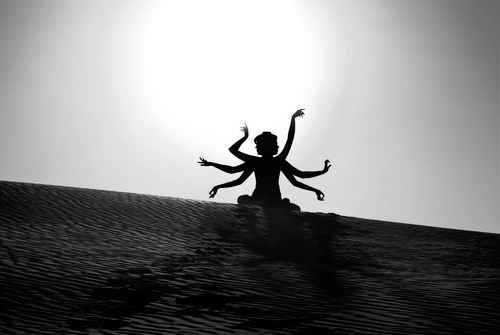Pagan Studies
Pagan Scholar seeks to examine particular topics within Paganism through the various lenses of philosophy.
Also, I make goofy vlogs and review books.
Formerly, A Pagan Aesthetic.
Perspectives on Deity
Perhaps central to Neo Pagan practices is the petition of Deity. The crudest of formulas for Neo Pagan ritual would be: create a sacred space, invoke deity, pay homage and/or petition, and dismiss. Though some petitions might be spontaneous and overlook some elements of space or decorum ( i.e. Penczack’s “instant magic”), the desires and force of will are almost always necessarily in conjunction with some form of request to a higher power. Linguistically, one could simply put it as; “to petition”, a subject must have an object to call upon. Even in the instance of petitioning the self, drawing forth some sort of believed, hidden energy from the depths of the practitioners psyche, the petitioner is calling upon an “other” to change or work with the “self”.
What must be maintained through all of this is the concept of petitioning an “outside” identity, but just who do we call upon when we admit there is something beyond our scope of capability? The primary idea of this outside force is that of Deity or God. Familiar attributes we assign Deity are the three “omni” qualities: Omnipresent, Omniscient, and Omnibenevolent. Abrahamic overtones aside, when one sets out to define Deity, the curious habit of assigning human characteristics also follows suit after our triformula of Deity. However, in our attempt to humanize Deity, what is often overlooked in favor of a more favorable god, is that to include human characteristics to an inherently transcendent idea is anathema to a logical definition of Deity. Put colloquially, you can’t have your cake and eat it too. This problem arises due to the limitations of human qualities; If we maintain Deity is all knowing, why do certain pagan deities have areas of expertise or realms of import? If the God in question is truly a God, would not specific realms of importance be superfluous?
In the posts to come, more specific examinations will cover the broad topics listed below. What is set forth is the idea that deity, by logical definition, must be either transcendent and unknowable, or limited (albeit supremely powerful, yet nevertheless still limited) but ultimately knowable. The avenues of connection to a knowable deity also hinges upon the harmonious and particular attributes assigned (or revealed, thats a theological exploration for another time) to specific deific personalities.
To start things off, the proposed divisions and overlaps follow as such: Deity as a Human Construct, Deity as Relevant to particular locales and environments, Gendered Deity and the dualities that ensue, the duality of Deity as conceptual and non gendered, and the enigma of Deity as unknowable. To examine each of these concepts, specific blog post will focus on one of the proposed divisions and how they engage with and overlap other categorical identities. The esteemed goal of these exchanges will not be some pedantic lecturing, but a genuine exchange of ideas to cultivate a more authentic appreciation of our most entigral element within Neo Pagan practices, the elusive yet omnipresent identity we worship called Deity.
Comments
-
Please login first in order for you to submit comments


















